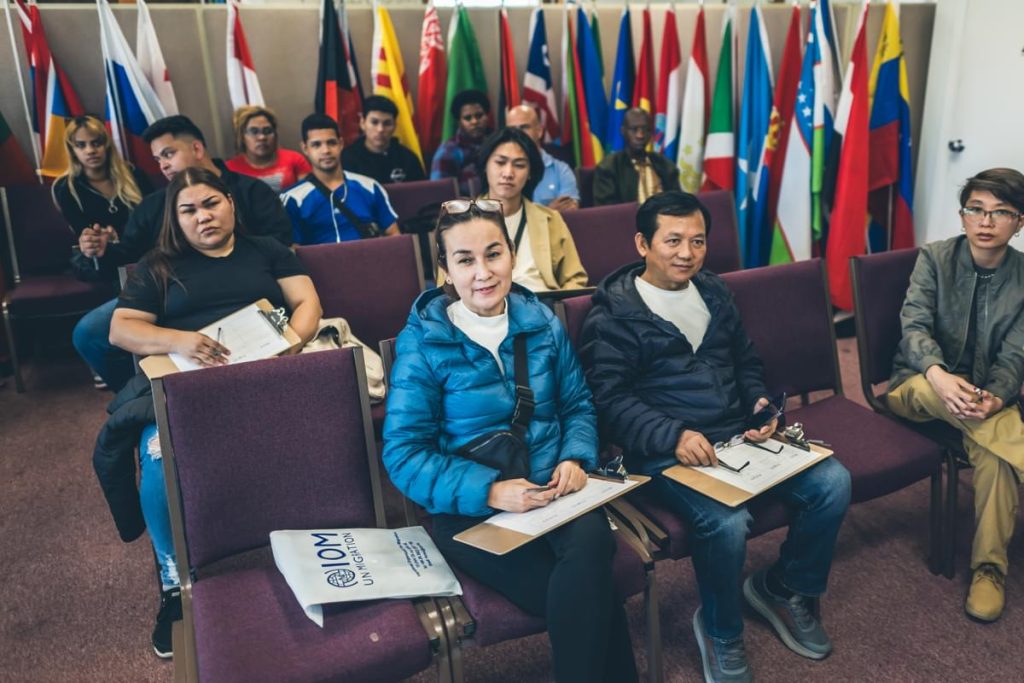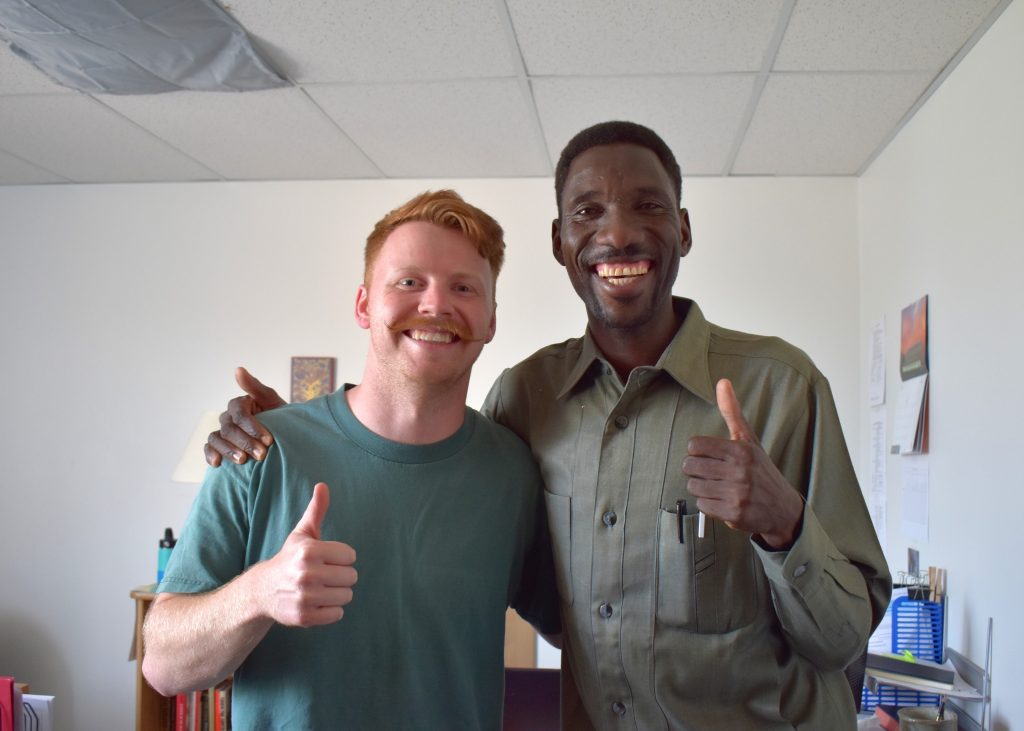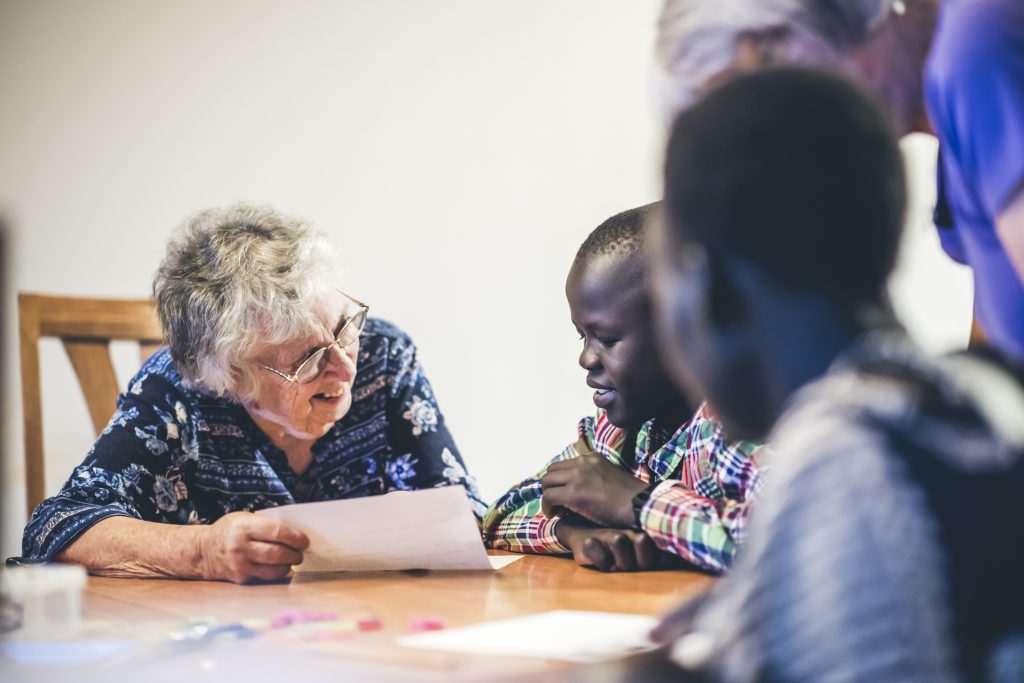Nearly 120 million people have been forced to flee their homes around the world due to violence, persecution, economic collapse, natural disasters, famine and drought. (UNHCR Global Trends) It is the greatest humanitarian crisis of our time.
What has that got to do with you?
Children, while they make up less than one third of the global population, comprised 40 percent of the world’s refugees in 2023. (UNICEF)
What has that got to do with you?
25.6 million people are facing hunger in Sudan. 13 areas of the country are at risk of famine. (World Food Programme) 10.2 million people in Sudan have been driven from their homes. (UNHCR)
What has that got to do with you?
4,998 Christians were killed for faith-related reasons in 2023, 90% of those deaths were in Nigeria.
North Korea, Somalia, Libya, Eritrea, and Yemen had the highest rates of reported persecution against Christians. The number of countries ranked as conducting “extreme” or “very high” persecution has risen from 23 in 2015 to 55 in 2023. (UK Parliament: Religious Persecution and the World Watch List)
What has that got to do with you?
“Hundreds of thousands of Afghans have been forced to return [to Afghanistan] after a Pakistani decree on undocumented migrants went into effect.” (UN Women)
Women in Afghanistan are not allowed to move around in public spaces unless they are accompanied by a male escort. (Medica Modiale)
Girls in Afghanistan are not allowed to go to school beyond the sixth grade. (AP News)
What has that got to do with you?
There were over 36 million acutely malnourished children under age 5 across 32 countries in 2023, according to the Global Report on Food Crises, with conflict and disaster-related displacement a major contributing factor.
One in six people worldwide lives in an area of active conflict. (Inkstick Media)
What has that got to do with you?
Sexual violence as a weapon of war has been reported in Ukraine and other war zones.
What has any of this got to do with you and me?

Well, that probably depends a lot on your perspective. Here’s mine:
I would love to turn off the news, focus on my friends and family, nestle into Jesus, take vacations, plan for retirement and spend all my waking hours relishing what is good and wonderful in my life. I have so much to be thankful for.
The thing about Jesus, though, is that when I’m walking with him, listening to him, he keeps saying all these really uncomfortable things. I might want it to be just him and me, but he keeps opening my eyes to those around me. He keeps putting suffering right in front of me.
- Mourn with those who mourn. (Matthew 5:4)
- Love your enemy and pray for those who persecute you. (Matthew 5:44)
- Turn the other cheek. (Matthew 5:39)
- And if anyone wants to sue you and take your shirt, hand over your coat as well. (Matthew 5:40)
- Sell all you have. Give it to the poor. Then, come follow me. (Matthew 19:21)
- I was a stranger and you invited me in. (Matthew 25:35)
- Freely you have received; freely give. (Matthew 10:8)
- Whoever would save his life will lose it, but whoever loses his life for my sake will find it. (Matthew 16:25)
- When you give a luncheon or dinner, do not invite your friends…invite the poor, the crippled, the lame, the blind. (Luke 14:12-13)


Jesus’ Example
I think we see signs throughout the New Testament of Jesus enjoying himself. He had good friends. He shared meals with them and had lively conversation. He walked with them. He went to weddings. He got away by himself to be with the Father. But he also makes it clear that the central point of his life was never about pursuing his own comfort.
“The foxes have holes and the birds of the heaven have nests, but the Son of Man does not have a place where He may lay His head.”
(Luke 9:58)
Jesus eats with sinners. He spends endless hours in crowded rooms healing the sick, explaining the kingdom of God. He feeds the 5,000. He leaves the 99 to search for the 1. He touches lepers. He sits down for a conversation with the Samaritan woman. He goes home with Zacchaeus, a despised tax collector.
“The Son of Man did not come to be served, but to serve, and to give his life as a ransom for many.” (Matthew 20:28)
“Therefore go and make disciples of all nations, baptizing them in the name of the Father and of the Son and of the Holy Spirit, and teaching them to obey everything I have commanded you. And surely, I am with you always, to the very end of the age.” (Matthew 28:19-20)
“Then Jesus said to his disciples, “Whoever wants to be my disciple must deny themselves and take up their cross and follow me.” (Matthew 16:24)
Jesus: Man of Compassion

The Bible tells us to be like Jesus (“Whoever says he abides in him ought to walk in the same way in which he walked.” I John 2:6), and throughout the gospels, we see Jesus demonstrating compassion.
“When he saw the crowds, he had compassion on them, because they were harassed and helpless, like sheep without a shepherd.” (Matthew 9:36)
“Compassion comes into the English language by way of the Latin root ‘passio,’ which means to suffer, paired with the Latin prefix ‘com,’ meaning together – to suffer together.” (Stanford Medicine website)
To suffer together. To mourn with those who mourn.
“Therefore, as God’s chosen people, holy and dearly loved, clothe yourselves with compassion, kindness, humility, gentleness and patience.” Colossians 3:12
Maybe, like me, you are tempted to turn away from the world’s suffering.
And, maybe, just maybe, you can justify it. Hey, I can’t care about everything and everyone. I’m over here, taking care of my family, going to church, trying to do the right thing. Surely, God doesn’t expect me to take on the world’s problems.
A Word from the Heidelberg Catechism
I’m a big fan of catechisms. (Stay with me here. I promise this is relevant.) I think it’s the question-and-answer method. I always seem to be the one in the room asking questions, and here are all these answers.
Questions 110 and 111 in the Heidelberg Catechism deal with the commandment not to steal.
Question 110 is fairly straightforward: What does God forbid in this commandment?
Answer: God forbids not only outright theft and robbery, punishable by law, but in God’s sight, theft also includes all scheming and swindling in order to get our neighbor’s goods for ourselves… In addition, God forbids all greed and pointless squandering of our gifts.
Now, look at question 111:
Q: What does God require of you in this commandment?
A: That I do whatever I can for my neighbor’s good, that I treat others as I would like them to treat me, and that I work faithfully so that I may share with those in need.
Author Doug Erlandson in his book, Righteous in Christ, expands on that idea: “In other words, we must promote the welfare of our neighbor. We must have concern for his material wellbeing. This means that insofar as we are able, we should share of our abundance with our neighbor. We should, when we can, look after him to make sure that he is not going through a time of hardship.”

October 10th & 11th
It’s a small world… and we’re all connected!
Join us for a gathering devoted to a deep dive into the subject of faith and immigration.
And who is this neighbor whose good I am supposed to pursue? You and I both know from Jesus’ reply to this question (and the accompanying story of the Good Samaritan) that there’s no way of escape there. My neighbor may be my sworn enemy.
Jesus’ repeated commands to love one another are not dependent upon ethnicity, proximity or behavior. He doesn’t say, love the nice ones, love the smart ones, love the ones that look like you. God says, “Weep with those who weep” (Romans 12:15). It doesn’t matter if their suffering is a result of their own sins or the sins of those in power. Pain is pain, no matter the cause, and it is right that we mourn with those who mourn.
120 million people around the world are suffering. We can close our eyes to it or we can be like Jesus.
Stay tuned for next week’s blog in which we continue this theme and look at specific action steps.

About the Author
Barbara Comito is the Development Director at World Relief Spokane. In addition to leading a team of creative professionals, she is married to a chef, has four children and three grandchildren, loves to garden, write and read/watch British mysteries.

